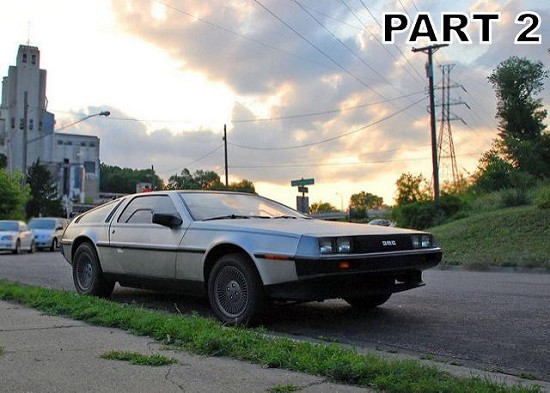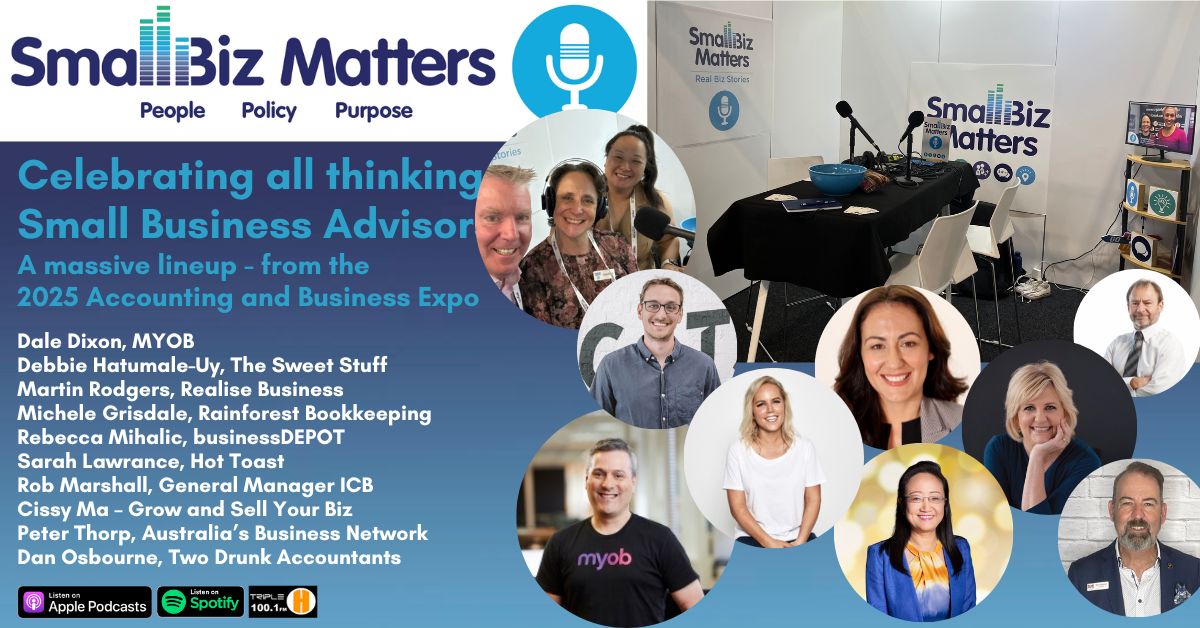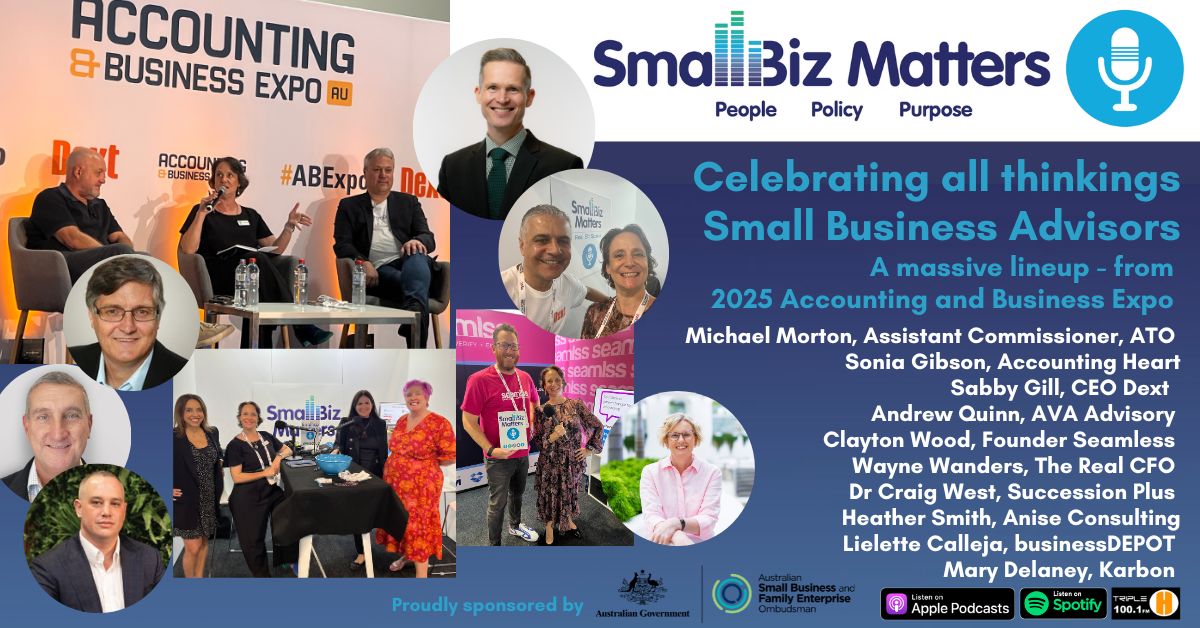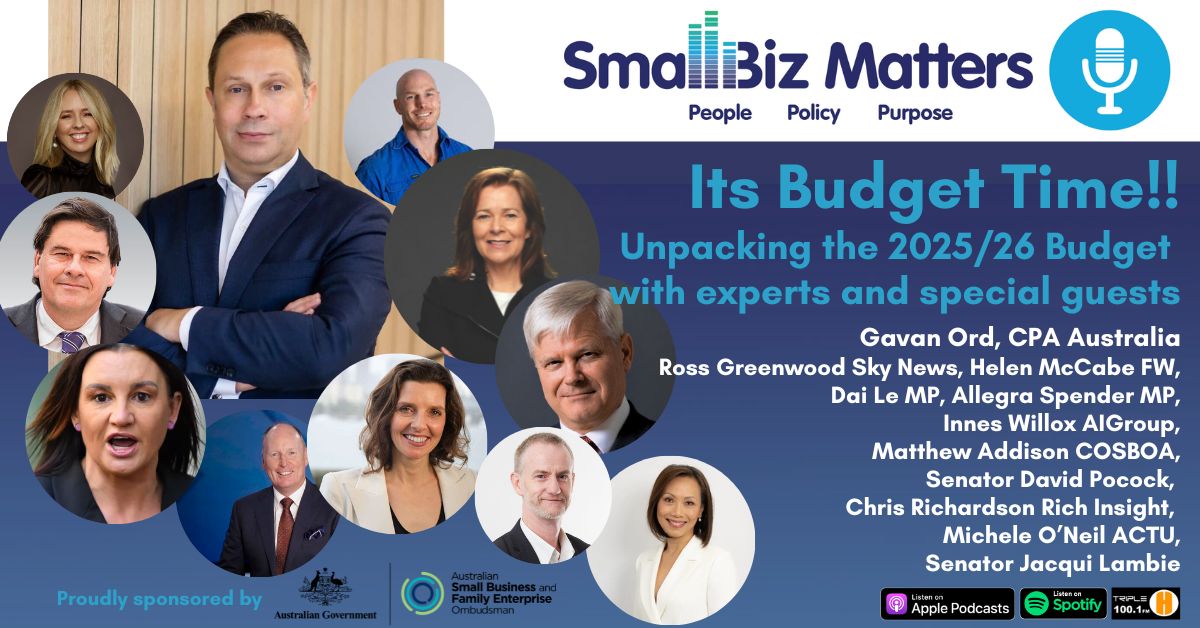What can we learn moving forward from looking back - Part 2
|Small Biz Matters – a half hour program each week where you can work ON your business rather than IN it.
Small Business Bookkeeping Tips
with Alexi Boyd from Boyd Office Management Services
Date: 3 May 2016
ANDY
Absolutely - and the key thing is to measure the right things and use that manage our #3 rule: which is Build a predictable customer funnel
Imagine if you knew that each time you posted certain kinds of content, or sent an email newsletter with certain kinds of content, that you could safely expect a certain number of leads or amount of revenue? Well, that's exactly how large businesses work. They measure everything and know what to expect. That email you received with a last minute flight deal to LA was probably part of an email campaign sent to a set number of people because the business knew how many emails they need to send to sell that many seats.
ALEXI
So what else should I be measuring?
ANDY
Well, if we break our customer funnel down into the main stages, we should be looking for metrics that tell us what's happening in each of those stages. There are five stages.
- Acquisition we just talked about - the bread on the water, getting attention shifted to your website with anything you do outside your website. So we're tracking like and shares, but mostly we're focussed on clicks through to our website.
- Activation - when they get engaged with your business - ideally with an email address. So here, we're tracking page views and sign ups to our newsletter list.
- Retention - when you succeed in bringing them back a second time - For that we can measure repeat visits to our website, people who click on our newsletter after receiving it.
- Referral - when they share with another prospective customer. Once this starts happening you know you've really connected with people and the last step is getting very close.
- Revenue - success, now repeat the last 3
ALEXI
Okay, so let's say I'm doing all that. Great - but most people I talk to are still in the Acquisition stage even though they are using social and posting content. How do they start getting Acquisition?
ANDY
You may have heard the name Seth Godin. He's a marketing genius with slew of best seller books that shaped much of the ground breaking thinking around digital marketing.
My favourite very simple Seth Godin advice when it comes to that first step is this:-
Be Remarkable.
Seth uses the analogy of a purple cow. If you're driving through Dural and you see cows in a field, there's pretty much no chance you're going to tell your friends about it.
But if you see a purple cow, it's very likely you would say something, because a purple cow is remarkable - something you want to remark on.
You need to figure out what your purple cow is. You need to discover the essence of your business that is remarkable and if you find nothing, you need to create something that is remarkable if you want to have any chance of standing out.
So that's our #4 rule - Find your remarkable story.
ALEXI
So the purple cow works on two levels - it applies both to my business as a whole, but also to each message I send out through whatever channel.
ANDY
Yes, find the hook in your story is another way of putting it. What makes what you have to say truly compelling, truly interesting from your customers point of view. The key here is we're not looking to hustle people or deliver a sales pitch, it's about something real that connects us with our customers.
ALEXI
Now what about mobile - how important is that in your digital business - should I be build my own app?
ANDY
There's a wonderful photo of a full peak hour train carriage from 50 years ago and every person without exception has a broad sheet newspaper wide open in front of them.
Well, the more things change the more they stay the same - but today it's mobile. The difference is the audience is scattered over 1,000's of possible websites as they click on items on their newsfeed.
This browsing behaviour is reflected in the fact we now see close to half sometimes more of all the visitors to a website or reads of an email newsletter are on mobile.
There's no question that being digital means being mobile.
ALEXI
So what does that translate into in terms of what I need to do differently?
ANDY
The number one thing is to ensure your website is mobile friendly. There's two ways to do that - one is to have a separate mobile website that mobile visitors get directed to. But this makes less sense now that we also have tablets, we have larger mobile devices and touch screen laptops.
So the approach now is to build one website that responds to the size of the device being used to view it. In other words, the layout of the website will adapt to make it easy to use on a phone, or a tablet or a desktop.
ALEXI
So, that's what is meant by Responsive Design. So, in short you need to have a Responsive Website.
ANDY
Yes. But to answer your question - does my business need an app - well, the answer to that is "it depends" but probably not. Let's say I'm a pizza shop that wants to take orders - that sounds like a job for an app. But amazingly, with Responsive Design, it's possible to deliver an app-like user experience without an app. In short, a great mobile website can feel a lot like a good native app - by native I mean an app specifically built for an Apple or an Android phone.
A good example is pizza.com.au - which is a startup I'm involved with. If you go there on your phone you'll see what I mean by an app-like experience all done using responsive design.
A lot of people say they already have too many apps, and not enough room on their phone, so being able to deliver an app like experience without asking users to install anything is really useful.
In short, unless you're trying to delivery a very complex experience, a mobile app isn't usually necessary.
So that's our #5 rule - Design for mobile first.
Alexi
Okay, so we've got our five rules - let's go back to very first step. If I don't have a budget for buying ads, what's the best first thing I can do to drive visitors to my website.
Andy
So the first step was Acquisition - and the best place to start is Search. And by that I mean making sure your website shows up on the search engines that matter - and mostly we just care about Google, as the it will bring the majority of visitors.
Alexi
If I want to be in the top 10 search results, what should I do?
Andy
Well, let's start with what you shouldn't do - and this is something small business are bombarded with constantly.
You should not use the services of anyone that promises they can put you in the top 3 or top 5 or top anything. I get emails almost daily from businesses who dare to guarantee these kinds of results and the reality is it simply is not possible and I'll explain why as we go through this.
Alexi
Wow, I get the same emails and I must admit I've been tempted. It sounds impressive.
Andy
Let's talk a bit about how Google and most other search engines decide what shows up when someone does a search.
There are actually 100's of factors taken into account to decide where each website in the search result rank. For example, the age of your domain name, are you getting mentions in social media, does your site use encryption and so on. But most of the factors contribute just a small percent to the overall score that will determine your ranking.
In very simple terms, the two main things have not really changed much over the years - content and links.
Alexi
Well, my content is great of course. But what does that even mean? What makes great content.
Andy
Well, great content boils down to relevance. Think about it - if you're doing a search for a specific phrase, say "understanding GST for small business" - the best content will be an article about exactly that topic.
So, we need to know how does Google figure out what a page is about and why might that page then rank better than another similar page.
Alexi
Don't they use bots?
Andy
Yes, a bot is software that looks at your page and adds it to Google's search index. Along the way the actual content of the page is read by Google's search engine and certain clues are used to determine the subject.
The most important of these is the page title - that's the text that appears in the tab heading in your browser when you're looking at the page. It's also the text that will show up as the heading in the search results. So this is easily the most important piece of text on the page and it's where a lot of people go wrong.
So, the first tip for content is to make sure the page title reflects the content on the page in a way that reflects the main thing you expect people searching for your content to look for.
Now, Google actually publishes this and a whole lot of other guidelines for how they like content to be organised in a Search Engine Optimisation Starter Guide. So, Google that - Search Engine Optimisation Starter Guide and have a read.
Alexi
That's a great tip. But how do I know what people are search for.
Andy
Google can help you answer that. The first trick is to check out Google Insights and guess at the phrases you think people are searching for. You can then compare the relative number of searches for those phrases and Google will suggest other searches that could be relevant. This is an excellent way to uncover how your customers see your business and to identify the words they use and optimise your content for that, rather than optimising for the way you see your business.
The second way to find what people is searching for is to set up a pay per click campaign but never launch it. Using Google's PPC campaign tools you can go beyond relative comparisons and see the actual numbers of searches Google predicts will occur for a particular phrase. And again you can compare different phrases and get suggestions.
Alexi
So, I can find out exactly how many searches there should be for "small business GST" in the next week?
Andy
Yes and that is an insanely powerful tool to understand your market and shape your digital strategy across a whole lot of areas - search, content, social and email. Because the phrases people search for are the phrases that will resonate best in your web content, on your social posts and in your email subject lines. It's all about relevance.
Alexi
What about links? Why do I want to get links to my website?
Andy
[explains links]
(Photo courtesy of https://www.flickr.com/photos/matt_d/)





